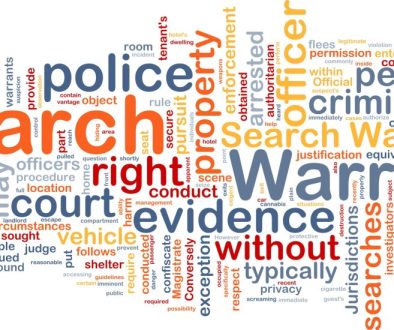Firm Successfully Argues for NJ Graves Act “Safety Valve”
Our law firm represents accused persons in Pennsylvania and New Jersey and as always, we try to provide information that is useful. Recently, I represented a union electrician in Cumberland County, New Jersey who faced a mandatory minimum state prison sentence carrying a handgun in New Jersey without a permit. While this person had a prior criminal history, it wasn’t extensive and I advised him to consider the safety valve exception to the Graves Acts as a way to avoid state prison.
I’ve have written a number of articles on the Graves Act in New Jersey and its related mandatory minimum 42 month state prison sentence. In the Garden State, any person convicted of the unlawful possession of a handgun without a permit under 2C: 39-5b(1), a crime of the 2nd degree, faces a mandatory minimum 42 month state prison sentence.
Mandatory Minimum Graves Act Sentences – Can a New Jersey defense lawyer really do anything?
Most people believe that given this law there is little, if anything, a defense counsel can do to prevent an individual from serving time in state prison. It’s important to understand, however, that in New Jersey, the Superior Court (New Jersey’s trial court) isn’t bound by the terms of any plea agreement. In addition, even if the law calls for a mandatory minimum sentence under the Graves Act, a New Jersey judge is permitted to impose a non-custodial probationary term under NJSA 2C: 43-6.2. This is known as the “safety valve” exception to the Graves Act (Full Waiver) mandatory minimum. It allows a judge to impose a probationary term even though a crime of the 2nd degree carries a presumption of incarceration in New Jersey and the mandatory minimum is the presumed sentence for this Graves Act offense.
Graves Act Safety Valve (Full Graves Act Waiver) – What your criminal defense lawyer needs to show the court and what the prosecution can do about it.
It’s important to keep in mind, however, that the safety valve exception requires the defense to demonstrate that specific mitigating factors substantially out-weigh the aggravating factors. While the defense and prosecution are allowed to present virtually anything in terms of mitigation and aggravation, New Jersey, like Pennsylvania, provides a list of these factors under 2C: 44-1. I have written previous articles on New Jersey’s published aggravating and mitigating factors and they are as follows:
Aggravating Factors
(1)The nature and circumstances of the offense, and the role of the actor therein, including whether or not it was committed in an especially heinous, cruel, or depraved manner;
(2)The gravity and seriousness of harm inflicted on the victim, including whether or not the defendant knew or reasonably should have known that the victim of the offense was particularly vulnerable or incapable of resistance due to advanced age, ill-health, or extreme youth, or was for any other reason substantially incapable of exercising normal physical or mental power of resistance;
(3)The risk that the defendant will commit another offense;
(4)A lesser sentence will depreciate the seriousness of the defendant's offense because it involved a breach of the public trust under chapters 27 and 30, or the defendant took advantage of a position of trust or confidence to commit the offense;
(5)There is a substantial likelihood that the defendant is involved in organized criminal activity;
(6)The extent of the defendant's prior criminal record and the seriousness of the offenses of which he has been convicted;
(7)The defendant committed the offense pursuant to an agreement that he either pay or be paid for the commission of the offense and the pecuniary incentive was beyond that inherent in the offense itself;
(8)The defendant committed the offense against a police or other law enforcement officer, correctional employee or fireman, acting in the performance of his duties while in uniform or exhibiting evidence of his authority; the defendant committed the offense because of the status of the victim as a public servant; or the defendant committed the offense against a sports official, athletic coach or manager, acting in or immediately following the performance of his duties or because of the person's status as a sports official, coach or manager;
(9)The need for deterring the defendant and others from violating the law;
(10) The offense involved fraudulent or deceptive practices committed against any department or division of State government;
(11) The imposition of a fine, penalty or order of restitution without also imposing a term of imprisonment would be perceived by the defendant or others merely as part of the cost of doing business, or as an acceptable contingent business or operating expense associated with the initial decision to resort to unlawful practices;
(12) The defendant committed the offense against a person who he knew or should have known was 60 years of age or older, or disabled; and
(13) The defendant, while in the course of committing or attempting to commit the crime, including the immediate flight therefrom, used or was in possession of a stolen motor vehicle.
Mitigating Factors
(1)The defendant's conduct neither caused nor threatened serious harm;
(2)The defendant did not contemplate that his conduct would cause or threaten serious harm;
(3)The defendant acted under a strong provocation;
(4)There were substantial grounds tending to excuse or justify the defendant's conduct, though failing to establish a defense;
(5)The victim of the defendant's conduct induced or facilitated its commission;
(6)The defendant has compensated or will compensate the victim of his conduct for the damage or injury that he sustained, or will participate in a program of community service;
(7)The defendant has no history of prior delinquency or criminal activity or has led a law-abiding life for a substantial period of time before the commission of the present offense;
(8)The defendant's conduct was the result of circumstances unlikely to recur;
(9)The character and attitude of the defendant indicate that he is unlikely to commit another offense;
(10) The defendant is particularly likely to respond affirmatively to probationary treatment;
(11) The imprisonment of the defendant would entail excessive hardship to himself or his dependents;
(12) The willingness of the defendant to cooperate with law enforcement authorities;
(13) The conduct of a youthful defendant was substantially influenced by another person more mature than the defendant.
Our Defense Argument
In this particular case in Cumberland County, our firm defended an individual who had a prior criminal history, which included 6 arrests and 2 municipal court convictions for disorderly persons (non-indictable) offenses. Despite this previous criminal history, the Superior Court judge found our firm’s argument compelling because it emphasized our client’s strong work history as a union electrician and his relationship with his 4 children, for whom he serves as the primary caretaker and income source. Graves Act mandatory minimum sentences are obviously serious, but in many cases the prosecution will at least agree to a plea in exchange for a “partial Graves Act waiver”.
Partial Graves Act Waiver
Unlike a Full Graves Act Waiver, a partial waiver would still require the individual to serve 1 year in state prison as opposed to the 42 month mandatory minimum sentence. A defendant should never assume a partial waiver. The prosecution must agree to the partial waiver and file a motion requesting that the court impose it. With regards to a full waiver, the sentencing judge in New Jersey, in most cases, does not have the authority to impose a probationary sentence. If the defense is seeking a full waiver it must make the motion to the assigning judge for that particular county.
For more information on Graves Act defenses I encourage you to keep reading my blog and read my previous articles on the Graves Act.



